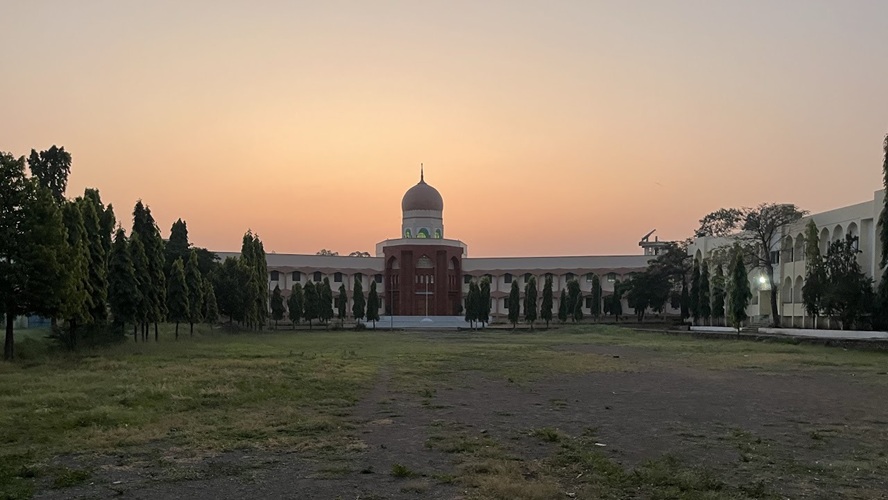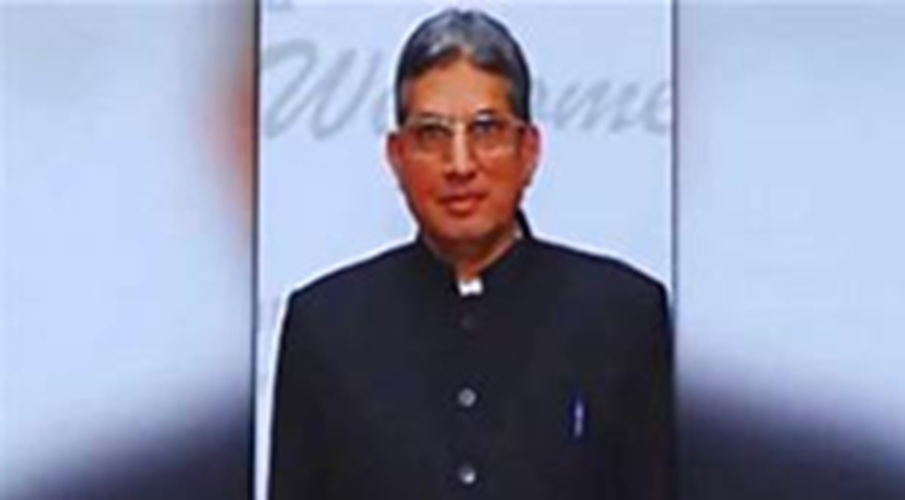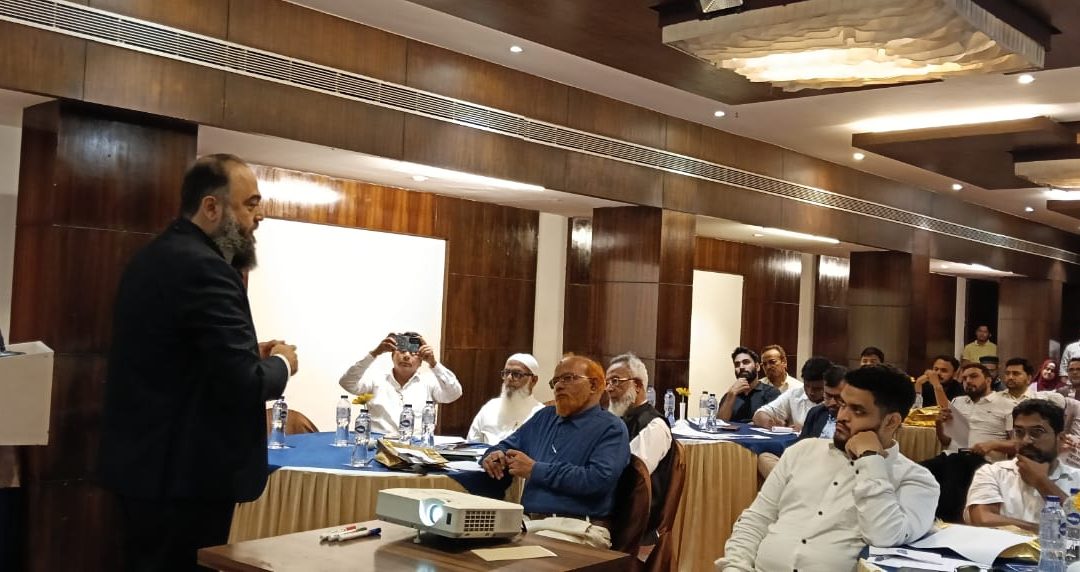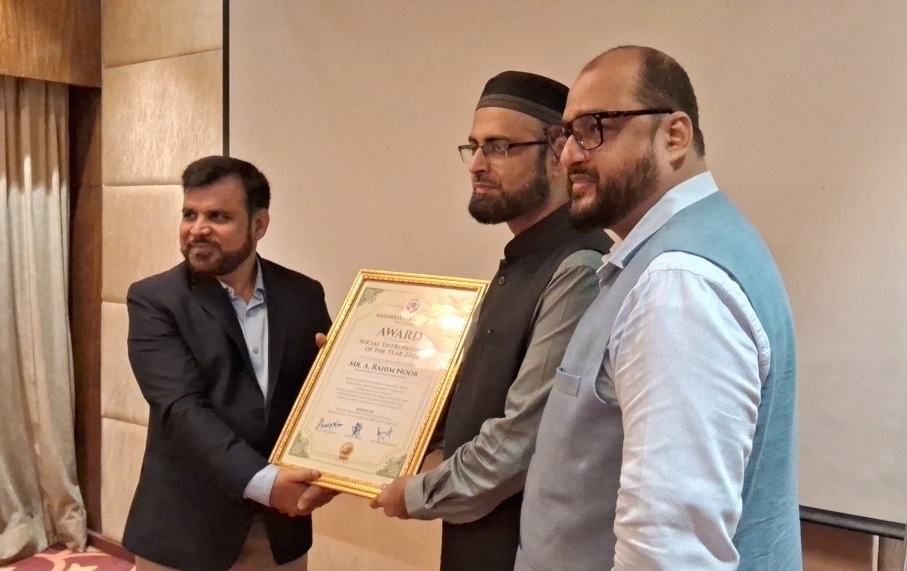Maeeshat News Network | Malegaon
Nestled along the banks of the Girna River in the Textile Hub of Malegaon, The Al Jamia Mohammediyah Education Society (JMES) continues to thrive as a pioneering educational complex that harmonizes Islamic Teachings with Modern Sciences. Established nearly five decades ago, this 70 acre campus serves thousands of students through a network of schools, colleges, and technical institutes. At its helm is Maulana Arshad Mukhtar, son of the visionary founder Maulana Mukhtar Ahmed Nadvi, whose leadership perpetuates a legacy of integrated Islamic and Modern Education aimed at empowering India’s Muslim youth, whilst preserving cultural and religious values.
The Legacy of JMES: A Model of Integrated Education founded in 1975 by the Late Renowned Indian Islamic Scholar and Author, Maulana Mukhtar Ahmed Nadvi, JMES was born from a bold revision of the centuries old Dars-e-Nizami syllabus, blending traditional Islamic Studies with Contemporary Subjects of English, Maths and Science to prepare the students for Global Challenges. Inspired by the historic Mansoora locality in 9th Century Baghdad, JMES quickly became a benchmark for Madrasa Modernization in India. It also gave JMES the unofficial name tag of Mansoora. Maulana Mukhtar Ahmed Nadvi’s passing in 2007 left a profound void, but his son, Maulana Arshad Mukhtar, seamlessly took the reins as President of JMES, expanding the vision with renewed vigour.
Today, the campus hosts a diverse array of institutions under JMES, including Maulana Mukhtar Ahmed Nadvi Technical Campus (MMANTC) for Engineering and Polytechnic, Mohammediyah Tibbia College and Assayer Hospital (MTC) for Unani Medicine, Asma Khatoon Junior College (AKJC), Afaque Academy (State Board School with Madrasa), SAAMAR International Islamic School (SIIS, affiliated to IGCSE Cambridge Board), Al Mukhtar Academy (International Curriculum with Islamic Studies), Mahad Usman bin Affan (Centre for Hifz along with Schooling), College of Arabic Language & Islamic Studies (CALIS), Kulliya Ayesha Siddiqua and Kulliya Fatima Zahra (Girls Education) and a SIEMENS Centre of Excellence. The institutes are spread across Malegaon, Bengaluru and Mau Campuses and are registered and affiliated to the respective state boards, Directorate of Technical Education (DTE), All India Council of Technical Education (AICTE), Savitribai Phule Pune University (SPPU), Maharashtra University of Health Sciences (MUHS), Misnistry of AYUSH, Mantralaya and other regulatory bodies.
JMES frequently organises National and International Conferences with presenters and participants from Asia, Africa and Europe contributing in its success. MTC, the Unani college, Government-recognised since 1984, excels in Medical Training, with Alumni securing top honours from MUHS regularly.
Community Engagement remains central, with medical camps, village adoption, mega blood donation drives and NSS activities conducted regularly.
Timely career guidance workshops, parenting seminars and anti-substance abuse programs help in the development of the youth.
National Holidays are celebrated with much ado, fostering a sense of social responsibility and national pride to contribute in nation building.
As admissions for 2025-2026 open, JMES reaffirms its commitment to holistic development, producing graduates who balance faith, ethics, and professional skills.
Key Institutions at JMES, MMANTC Engineering and Polytechnic offering Degrees and Diplomas in Computer Engineering, Civil Engineering, Electrical Engineering, Electronic & Telecommunications Engineering, Mechanical Engineering and Textile Engineering focus on STEM innovation and women’s participation with over 6 patents filed in Academic Year 2024-2025 only, MTC, renowned for its COVID Response and contribution of its BUMS alumni in pandemic management along with the miracle of Malegaon, the Mansoora Kaadha which acted as major medical relief during the harrowed hours of 2020.
The expansive JMES model not only educates, but also symbolises the fusion of Islamic Principles with India’s Progressive Ethos, serving as an inspiration for educational reforms nationwide.
Maulana Arshad Mukhtar: Carrying Forward a Vision of Empowerment through Education
Maulana Arshad Mukhtar, a philanthropist, industrialist, and educationist, assumed leadership of JMES in 2007, building on his father’s foundational work to propel Jamia Mohammediyah into a national force for Muslim upliftment. Described as an “able and equally ambitious” successor, he has championed the integration of Madrasa education with mainstream systems, arguing that “the route to empowerment of Indian Muslims goes through linking Madaris with mainstream education system.”
Central to his vision is addressing the needs of the 96% of Muslim Students in secular institutions who risk losing touch with Islamic Principles. In a landmark 2017 Educational Conference at Mansoora Malegaon, Arshad Mukhtar unveiled plans to establish integrated schools across India, starting with a flagship in Malegaon (Āfaque Academy). These schools aim to select top performers for advanced preparation in higher, professional and technical education, ensuring they remain grounded in faith while excelling in sciences and technology. “Our founder’s vision was to empower the youth of India through quality technical education”, he emphasized, highlighting the need to preserve timeless cultural values amid rapid modernisation.
It is pertinent to note that many of the alumni of JMES, both boys and girls, have gone on to establish primary education centres in the rural landscapes of India and are helping in this journey of nation building through education.
Under the stewardship of Maulana Arshad Mukhtar, JMES has prioritised inclusivity, particularly for girls and rural youth, through initiatives like STEM conferences promoting women’s participation and revised syllabi that qualify students for elite programs, such as Graduation from Jamia Islamia Madinah in Saudi Arabia where hundreds of JMES alumni have secured education and more than 18 have gone on to top the merit list.
Maulana Arshad Mukhtar’s approach extends to community welfare, including Unani healthcare advancements that blend ethical training with employability skills. His father’s belief-that education alone grants a “vision of the future” guides these efforts, positioning JMES as a resilient pillar in India’s diverse educational landscape. As challenges like curriculum divides persist, Maulana Arshad Mukhtar’s forward thinking leadership ensured JMES not only honours its heritage but actively shapes an empowered, unified tomorrow for Muslim youth.






0 Comments